A CINDERELLA FOR ALL AGES
You might think you know the story if you’ve seen Disney’s animated version, but Rossini’s Cinderella (or La Cenerentola, literally “little girl of the cinders”) is intriguingly different.
Rossini’s collaborator, librettist Jacopo Ferretti, hews rather closer to Charles Perrault’s 1697 fairy tale Cendrillon—not the tale’s first telling, but certainly one of the most popular.
In Rossini’s opera the glass slipper has been replaced by a bracelet, the stepmother by a stepfather, and the fairy godmother by the prince’s philosopher/tutor.
The most significant difference between the classic Disney version and Rossini’s opera, however, is that Cinderella falls in love with the prince under the guise of the prince’s valet. Thus, when the valet (disguised as the prince) proposes to her, she refuses, declaring that she is in love with his servant (the prince).
The two lovers, therefore, are able to meet—in appearance, at least—as equals; the prince gains a taste of what it’s like to be ordered about and Cinderella chooses nobility of character over nobility of title. It’s a far cry from the equally comic yet cynical approach to feminine character espoused by Mozart’s Cosi Fan Tutte.
Lyric Opera’s delightfully laugh-out-loud production is directed by Joan Font, founding director of Barcelona’s Els Comediants. His playful interpretation provides prominent acting roles to six rats who form Cinderella’s domestic court. Moving with the grace and nimbleness of dancers, these silent actors heighten the comedy and underline the fantasy, while proving incredibly useful as stage hands.
Joan Guillén’s set and costume design complement Joan Font’s direction with a mixture of the abstract and the cartoonish, which means it looks remarkably familiar—if you’ve been to Lyric’s new and concurrent production of Mozart’s Marriage of Figaro, especially when Sarah Hatten’s comparably colorful and outlandish wigs are factored in.
Now, there’s nothing necessarily wrong with having two such similar productions side by side, but a little more variety would be preferable. Fortunately, Cinderella’s lighting design is far superior. Albert Faura not only backlights Guillén’s abstract sets with mood-setting colors, but simulates lightning storms and magical journeys.
Four of the seven singers filling named roles are new to Lyric Opera: Diana Newman and Annie Rosen of the Ryan Opera Center as Cinderella’s stepsisters Clora and Tisbe, Lawrence Brownlee as Don Ramiro, and Vito Priante as the valet Dandini. Brownlee’s elegant tenor complements his role well, showing great delicacy of phrasing, deft coloratura, and sonorous high Cs. Together with fellow Italian Alessandro Corbelli, who has a real gift for slapstick, Priante keeps Rossini’s syllable-laden ensemble arias hurtling forward at breakneck speed. Lyric’s supertitles, however, disappointingly fail to keep up, leaving the audience in the proverbial dark much too often.
Filling a role that she has performed to critical acclaim elsewhere, mezzo soprano Isabel Leonard embodies Cinderella beautifully. Still in her early 30s, she boasts just the right balance of innocence and experience, to borrow a phrase from William Blake, and these are amply reflected in her two arias that bookend the opera’s two acts: “Una volta c’era un re” and “Nacqui all’affanno e al pianto.” While the former basks in pathos, the latter is resplendent with grace and magnanimity; it is an impressive transformation.
Unlike the more adult operas that precede and follow it this season, Cinderella is absolutely family friendly, appealing to the young and the old.
Lyric’s production doesn’t take itself too seriously, but traffics in fantasy, fairy tale, and fun.
Although it’s hard to believe that Rossini wrote this opera in his mid-twenties, it’s easy enough to see why it is one of his most popular. It offers an overture to rival even his William Tell and enough escapism to enable you to live the dream for a few hours.
photos by Todd Rosenberg and Andrew Cioffi
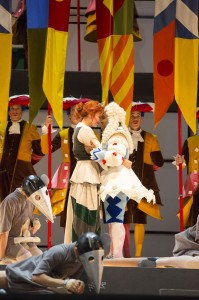 Cinderella
Cinderella
Lyric Opera of Chicago
Civic Opera House
20 N. Wacker Drive
ends on October 30, 2015
for tickets, call 312.827.5600 or visit Lyric Opera
for more shows, visit Theatre in Chicago
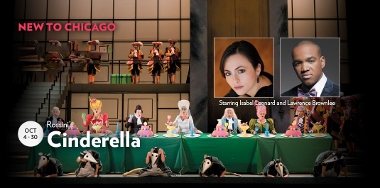
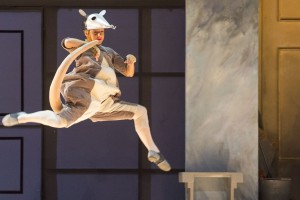
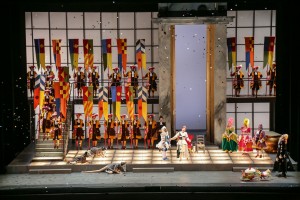
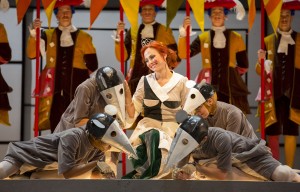
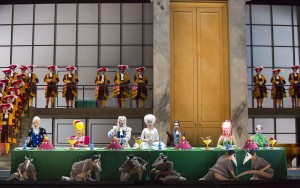
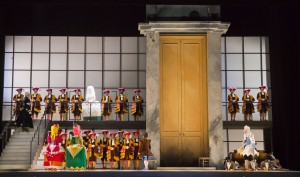
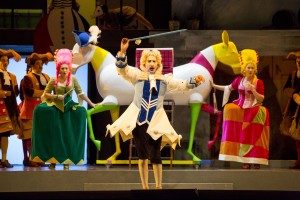
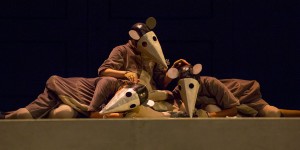
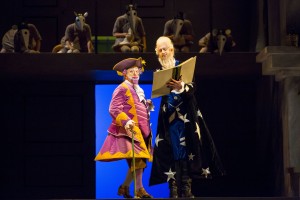
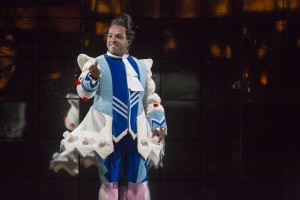
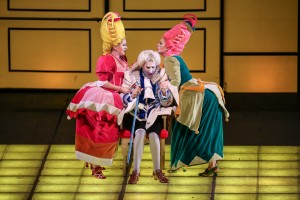
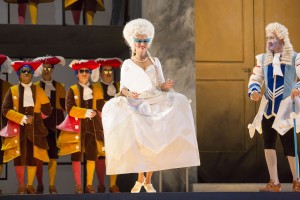
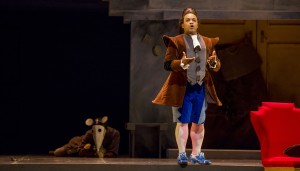
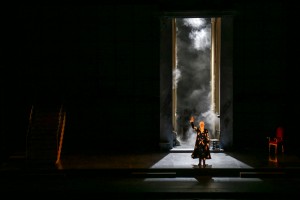
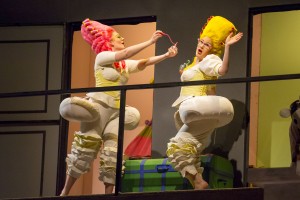
{ 1 comment… read it below or add one }
Yes indeed! Very funny and a fine opera. Wonderful job from the orchestra too.